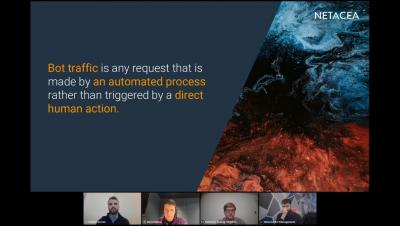Security | Threat Detection | Cyberattacks | DevSecOps | Compliance
Netacea
Social Engineering Part 3: Social engineering prevention techniques
Social engineering is a form of security fraud that relies on psychological manipulation techniques to trick people into revealing sensitive information. In the previous two articles in this series, we discussed in depth what social engineering is, and highlighted a variety of both common and sophisticated social engineering attacks.
3 times bots have impacted major world events
From stealing sneakers to pinching PlayStations, bots are increasingly earning a reputation for being nefarious and disruptive – none more so than bots deployed by state actors to wield significant geopolitical influence. The Arab Spring, Brexit, and recent US presidential elections have all been victim to carefully orchestrated bot attacks from myriad geopolitical actors.
Social Engineering Part 2: Sophisticated social engineering techniques
Social Engineering is a form of security fraud that relies on psychological manipulation techniques to trick people into revealing sensitive information. In the previous article in this series, we discussed what social engineering is in more detail, the social engineering lifecycle, its reliance on human error, and some of the more common social engineering techniques.
Grinch bots have already stolen the countdown to Christmas
In a recent Quarterly Index report, Netacea’s Threat Research Team listed the top five scalper bot targets of Q3 2021 and predicted the items most sought after by bots for Black Friday and the festive shopping season. But scalper bots (or grinch bots) have already been hard at work ahead of Christmas, depriving genuine consumers of luxury advent calendars and limited-edition toys in the run up to peak retail period.
Social Engineering Part 1: What is social engineering?
Social Engineering is a form of security fraud that relies on psychological manipulation techniques to trick people into revealing sensitive information. This is often carried out online using a variety of social engineering techniques; one of the more commonly referred to social engineering attacks are phishing attacks (including, vishing, smishing, spear phishing and whale phishing).
Protecting customer experience for Black Friday | Cybersecurity Sessions #1
How Does Machine Learning Prevent OTA Fraud?
Online travel agencies, more commonly referred to as OTAs, are online booking platforms used to compare prices and book flights, hotels or holiday packages. Well-known OTAs include Expedia, Booking.com and TripAdvisor. While we have seen a significant increase in the use of OTAs for booking travel arrangements in recent years, we have also seen a similar rise in OTA fraud. Total fraud loss to OTAs was predicted to grow by 19% to $25 billion by the year 2020.
How much is fare scraping costing the travel industry?
Scraper bots make up the worst of bad bot traffic for the travel industry, with sites witnessing over 90% of traffic attributed to fare scraping. Whilst this activity can be benign or even used for positive means, if uncontrolled it can impact top line revenue, bottom line profits and customer experience.
Is Influencer Marketing being Besieged by Bad Bots and Fake Followers?
Influencer marketing is set to be worth $13.8 billion by the end of 2021, rising from $9.7 billion since last year. With many people working from home during the pandemic, monetizing a social media following by creating sponsored posts for brands has become a popular side hustle. This can be seen by the rapid growth of emerging platforms, particularly TikTok which saw over 2 billion downloads in 2020 and a 45% increase in its use by influencers in 2021 to date.










